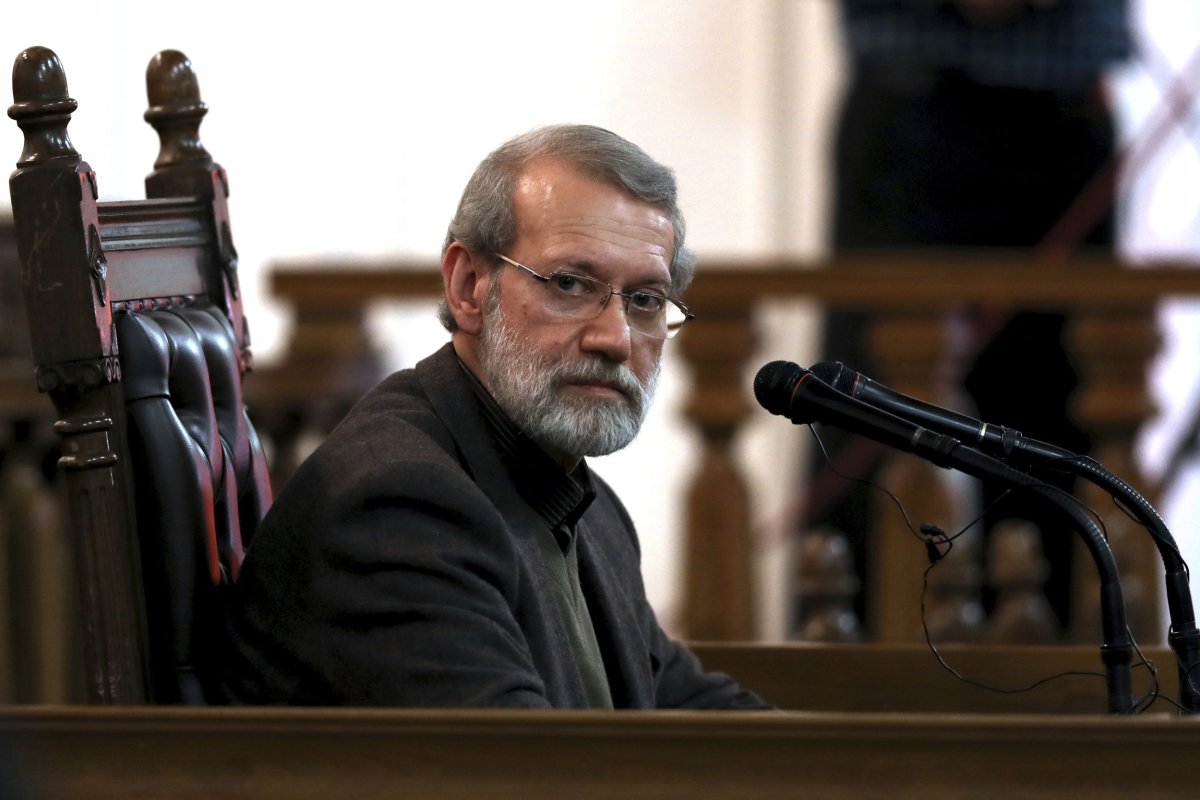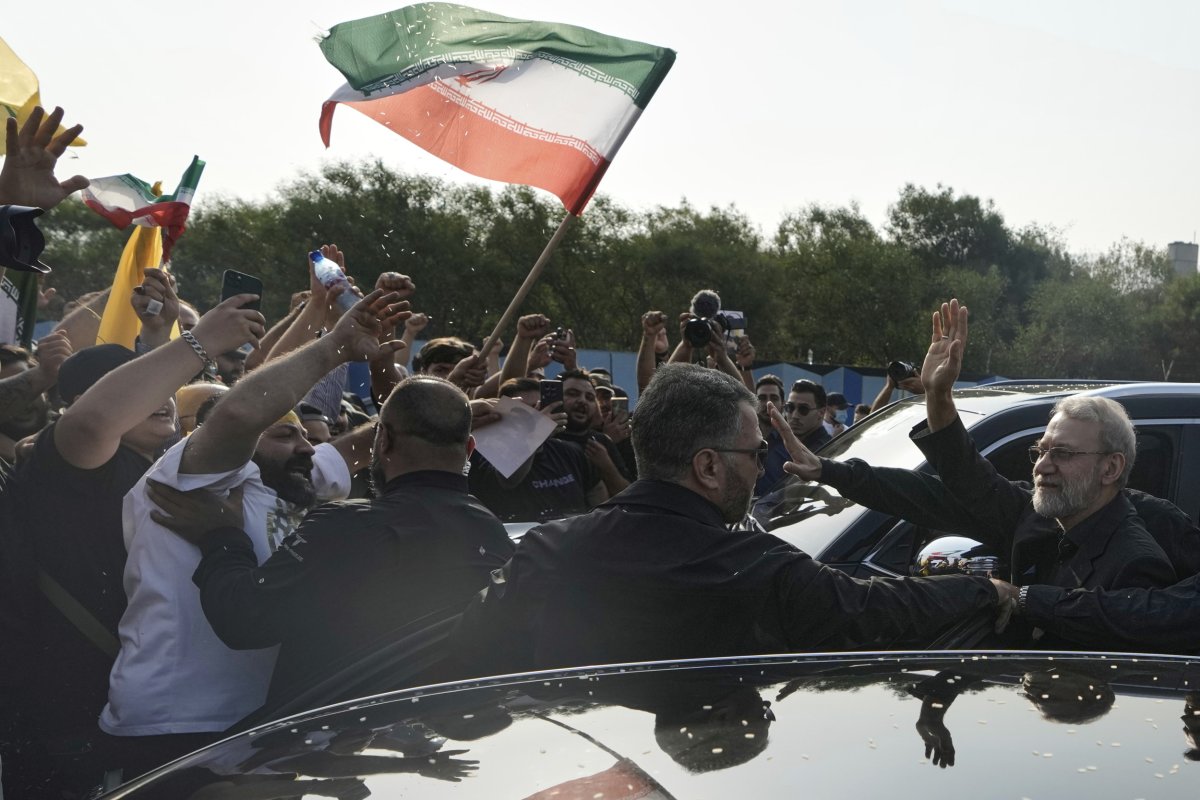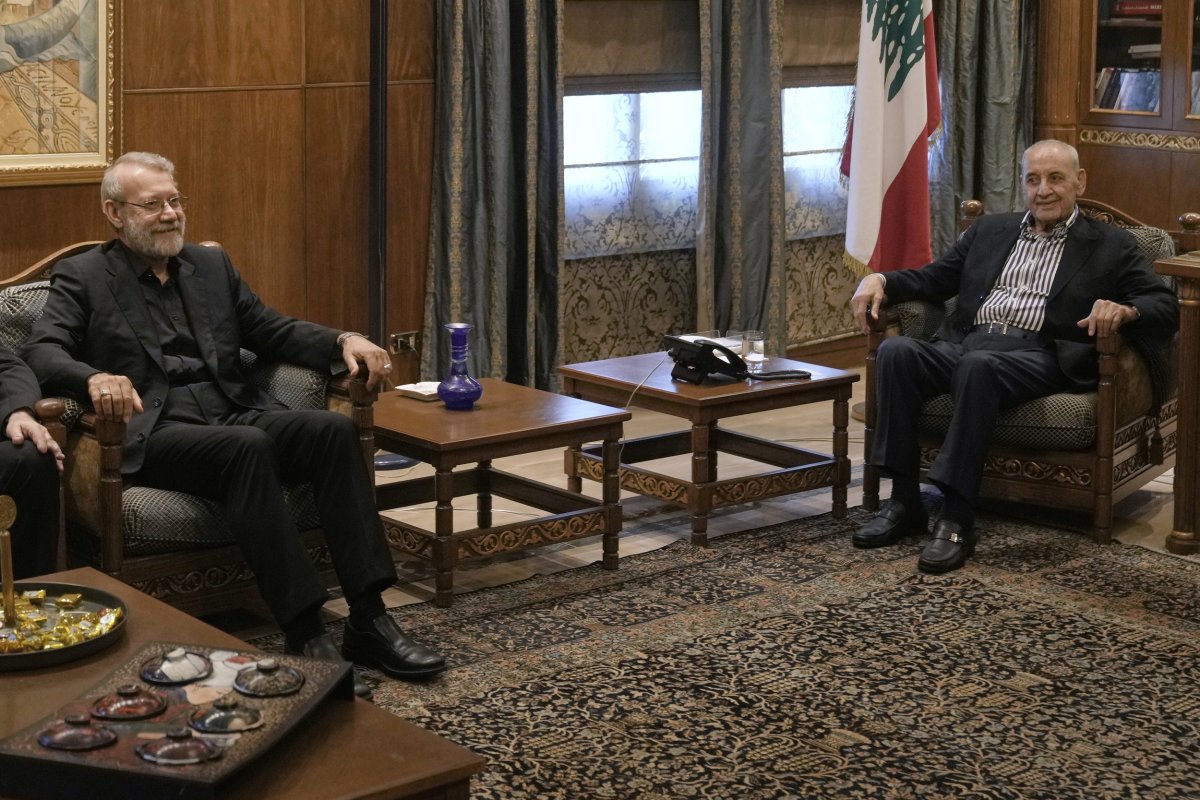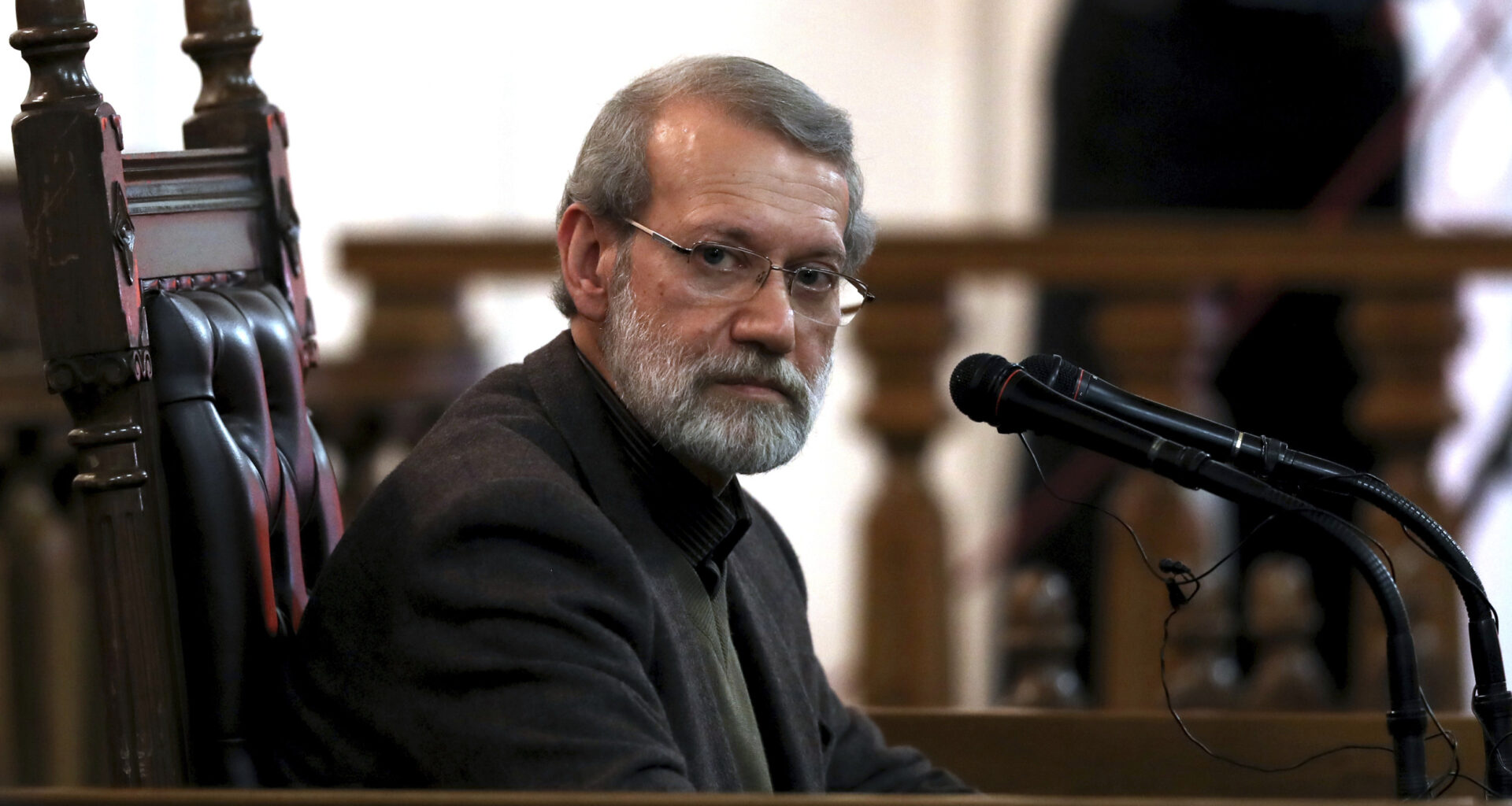Ali Larijani has surged back into Iran’s corridors of power as Secretary of the Supreme National Security Council, taking a decisive role in steering the country’s regional and defense strategy.
A senior advisor to the Supreme Leader Ali Khamenei, Larijani has moved quickly in his new role, traveling to Moscow, Baghdad and Beirut to reinforce alliances, manage Tehran-aligned proxies, and signal Iran’s influence amid rising tensions with the United States and neighboring countries.
Newsweek has reached out to Iran’s Foreign Ministry for comment.
Why It Matters
Larijani’s re-emergence signals Tehran’s reliance on experienced, trusted figures to steer its regional strategy. His influence could consolidate Iran’s network of proxies and allies, reinforce its positions in Iraq, Lebanon and Syria, and affect how Iran navigates its relations with Washington and other regional powers.

Ali Larijani listens to a question during a press conference in Tehran, Iran, on December 1, 2019.
Ali Larijani listens to a question during a press conference in Tehran, Iran, on December 1, 2019.
Vahid Salemi/AP Photo
What To Know
Larijani‘s role as Iran’s top security official and as a senior adviser to the country’s supreme leader places him at the core of Tehran’s strategic and defense operations.
Dr. Sanam Vakil, director of the Middle East and North Africa Programme at think tank Chatham House, told Newsweek: “Ali Larijani’s appointment as Secretary of Iran’s Supreme National Security and designation as the country’s representative marks the return of a pragmatic conservative close to the leadership to a critical post just weeks after the war with Israel.”
Previous Positions
Before his latest appointment, Larijani held influential but less central roles in security policymaking. A founding member of the Islamic Revolutionary Guard Corps (IRGC) and former nuclear negotiator, he headed state media and served as Speaker of Parliament from 2008 to 2020 when he decided to step down. These roles emphasized legislative, diplomatic and advisory work, making his current position a clear return to the heart of Iran‘s defense and regional strategy.

Ali Larijani, right, head of Iran’s National Security Council, gestures as Hezbollah supporters gather to welcome him outside Rafik Hariri International Airport in Beirut, Lebanon, on August 13, 2025.
Ali Larijani, right, head of Iran’s National Security Council, gestures as Hezbollah supporters gather to welcome him outside Rafik Hariri International Airport in Beirut, Lebanon, on August 13, 2025.
AP Photo/Bilal Hussein
A tour of influence
Since taking on his new role, Larijani has traveled to Moscow, Baghdad, and Beirut. His meeting with Russian President Vladimir Putin in late July saw high-level discussions on regional security and cooperation. In Baghdad, he met with Iraqi leaders, laid a wreath at the site of the killing of Qassem Soleimani—the famed IRGC general assassinated in a U.S. drone strike ordered by then-President Donald Trump in January 2020—and discussed Tehran-aligned proxies.
Larijani visited Beirut on Wednesday, meeting with the Lebanese president and parliament speaker amid a heated domestic debate over Hezbollah, the Iranian-backed political and militant group. The Lebanese army is drafting legislation to bring all armed groups under state control, but Hezbollah has warned it will resist any attempts to disarm until Israel withdraws from contested areas.

Ali Larijani, left, meets with the Lebanese Parliament Speaker Nabih Berri, in Beirut, Lebanon, on August 13, 2025.
Ali Larijani, left, meets with the Lebanese Parliament Speaker Nabih Berri, in Beirut, Lebanon, on August 13, 2025.
Bilal Hussein/AP Photo
What People Are Saying
Dr. Sanam Vakil, Director, Middle East and North Africa Programme, Chatham House: “His selection signals a shift toward a more unifying, experienced regime insider capable of managing both domestic political tensions and sensitive regional diplomacy. Larijani’s track record as parliament speaker and nuclear negotiator suggests Tehran may seek a more calibrated security and foreign policy approach. His experience positions him to navigate complex regional dynamics while maintaining cohesion within Iran’s political structures.”
What Happens Next
Larijani’s return to high-level diplomacy and security management marks a new chapter for Iran’s strategic operations. As the country continues to engage with regional allies and respond to U.S. policies, his role in coordinating defense, diplomacy, and domestic stability will be closely watched.
